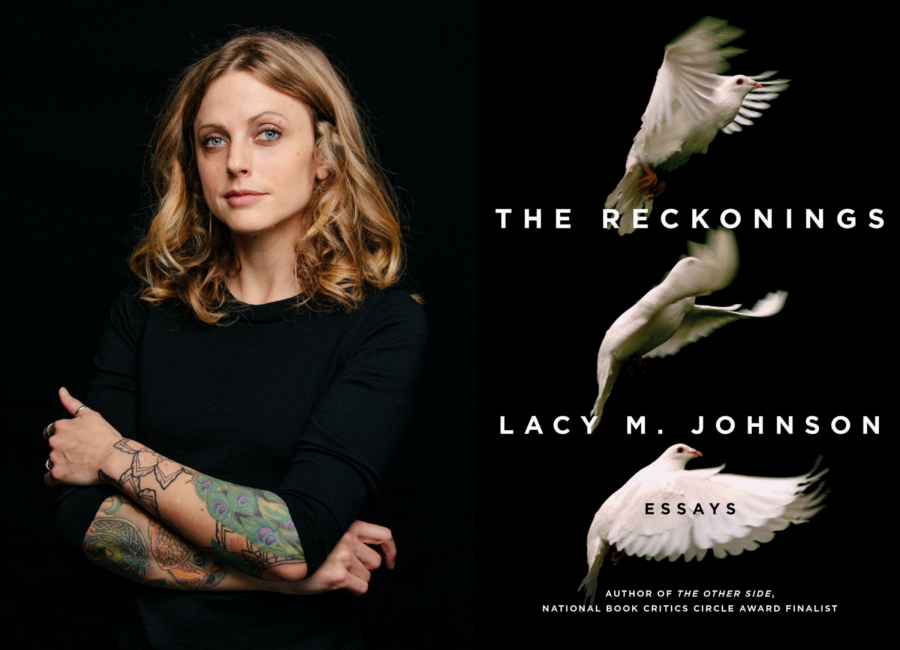Lacy Johnson’s “The Reckonings” deals a real reckoning to all injustices
Electric Literature
“The Reckonings” makes a subtle, yet roaring, statement on white privilege and female empowerment.
March 8, 2019
In her latest memoir and book of essays, “The Reckonings,” Lacy Johnson grapples with justice, punishment and the gray space in between, serving up a timely platter of penetrating truths and uncomfortable realities.
Early on, Johnson reveals her fragmented past, in a straightforward way: she was kidnapped, raped and almost killed by the man she loved. It’s betrayal in the most intimate, terrible form, and throughout her collection of essays, Johnson explores this imbalance of power — men soaring high above, women stranded underneath.
Does she want vengeance for the countless ways he wrecked her? On behalf of every woman who was ever suppressed by a man?
Justice is what Johnson is seeking — or rather, a reckoning. In one forceful, vehement phrase, Johnson crystalizes everything the title and the essays stand for: “More than anything, what I want is a reckoning … I want a reckoning for the woman shot in the back of the head and the man killed while running away … I want the truth told back to us. I want the lies laid bare.”
And not only does Johnson want justice for women, but she also wants justice for everybody. Through the multitude of essays, she explores, with anguishing honesty, a wide scope of the ways humanity has turned for the worse: violence toward women, school shootings, terrorists, guns, rape, etc.
It feels a little overwhelming, a rush of horrible things coming at you like a black, threatening wave. The abundance of topics that Johnson tries to cover makes her writing slightly confusing, losing the reader in its harsh twists and turns.
Despite this, her writing is simple and bare, sincere and brutally honest. This lack of flowery words lends clarity to her prose, letting it penetrate deeper and fiercer, like a polished diamond. Her words are unobstructed by unnecessary language, making them easier to understand.
The first several essays were so bare they were slightly flat; while the topics she covered were timely and powerful, her voice fell short. There was nothing particularly refreshing or electric about the prose,å nothing too memorable in the way she told her stories — the words were lackluster and bordering on dull, despite their slender intensity.
Her intricate descriptions of daily life go on for a little too long, so my attention slipped. But it is somewhat understandable: Johnson gathers all the little details, and wrings them out like a towel, enforcing the belief that the world is still grossly leaning toward men and toward violence.
The desperate, almost hopeless truth that Johnson conveys is that there is much to be feared in this world. In her own experiences, Johnson outlines the many unconscious ways in which she protects herself and her children, from keeping “sharp” scissors on her desk to praying that her children “come home safe” from school. These are dark revelations, but despairingly, also jagged realities that Johnson confronts everyday.
Yet as the book progresses, it becomes less a vacuum of depression, and more of, in a true sense, a collection of powerful and assertive essays. This is where Johnson focuses on a central topic: rape. In the chapter “Speak Truth to Power,” Johnson follows one horrifying piece of evidence with the next; she takes the much-discussed issue of rape and intensifies it vividly. Murder results in a dead body, kidnappings are proven with the lack of one — but rape is the only crime in which the victim herself is doubted.
In moments of gripping, voltaic brilliance, Johnson’s prose seems to tunnel into the reader’s mind with its dauntless concepts. “For most women, rape has been the norm and respect the exception,” she says.
The words are fiercely and necessarily uncomfortable: “[S]he is seen as meaningless.”
Johnson tells the story of the first time she was raped, at age 14. It is gross and ugly and traumatizing. Johnson writes, “And here I am, alive, still speaking … We must tell anyone and everyone who will listen. And those who will not listen must be made to hear.”
This is the message to take away.
In her following essays, Johnson covers other raging issues such as the environment (“Guilt itself is useless and worth nothing”), race (“[I]ts construction has everything to do with power and very little to do with skin color”), evil, humanity and the power of art “in the age of apocalypses.” But in the end it all comes down to the same urgently provocative message: to tell anyone and everyone.
The essays in “The Reckonings” are worth reading, perhaps even a must-read for those who declare themselves feminists or activists. Johnson addresses the staggering issues of feminism, terrorism and violence, and fearlessly ponders the future of humanity. In Johnson’s writing, one might find solace and inspiration in nearly every subject.
“The Reckonings” was released in November 2018 and can be found on Amazon for $17.


